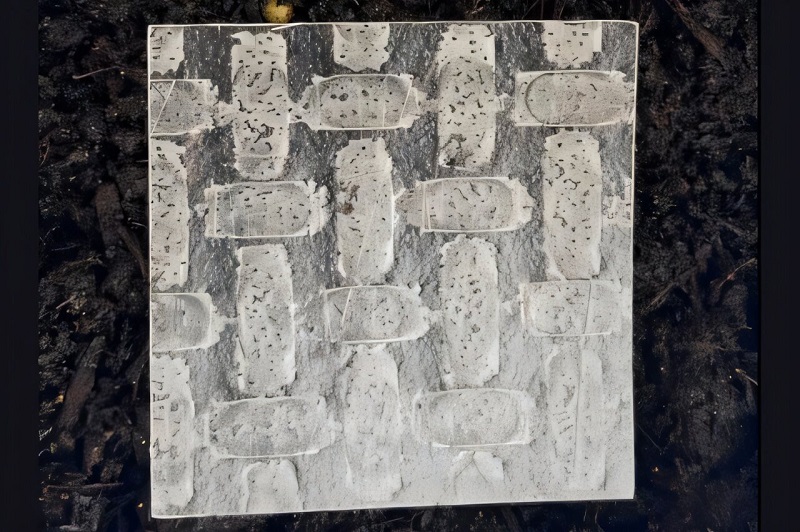China’s social scoring system has sparked fears of similar developments elsewhere. A Swiss team is currently trying to find out how democracies...
Vous n'êtes pas connecté
Rubriques :
 - EURASIAREVIEW.COM - A la une - 15/06/2024 00:54
- EURASIAREVIEW.COM - A la une - 15/06/2024 00:54
New Study Offers A Better Way To Make AI Fairer For Everyone
In a new paper, researchers from Carnegie Mellon University and Stevens Institute of Technology show a new way of thinking about the fair impacts of AI decisions. They draw on a well-established tradition known as social welfare optimization, which aims to make decisions fairer by focusing on the overall benefits and harms to individuals. This method can be used to evaluate the industry standard assessment tools for AI fairness, which look at approval rates across protected groups. "In assessing fairness, the AI community tries to ensure equitable treatment for groups that differ in economic level, race, ethnic background, gender, and other categories," explained John Hooker, professor of operations research at the Tepper School of Business at Carnegie Mellon, who coauthored the study and presented the paper at the International Conference on the Integration of Constraint Programming, Artificial Intelligence, and Operations Research (CPAIOR) on May 29 in Uppsala, Sweden. The paper received the Best Paper Award. Imagine a situation where an AI system decides who gets approved for a mortgage or who gets a job interview. Traditional fairness methods might only ensure that the same percentage of people from different groups get approved. But what if being denied a mortgage has a much bigger negative impact on someone from a disadvantaged group than on someone from an advantaged group? By employing a social welfare optimization method, AI systems can make decisions that lead to better outcomes for everyone, especially for those in disadvantaged groups. The study focuses on "alpha fairness," a method of finding a balance between being fair and getting the most benefit for everyone. Alpha fairness can be adjusted to balance fairness and efficiency more or less, depending on the situation. Hooker and his co-authors show how social welfare optimization can be used to compare different assessments for group fairness currently used in AI. By using this method, we can understand the benefits of applying different group fairness tools in different contexts. It also ties these group fairness assessment tools to the larger world of fairness-efficiency standards used in economics and engineering. Derek Leben, associate teaching professor of business ethics at the Tepper School, and Violet Chen, assistant professor at Stevens Institute of Technology, who received her Ph.D. from the Tepper School, coauthored the study. “Common group fairness criteria in AI typically compare statistical metrics of AI-supported decisions across different groups, ignoring the actual benefits or harms of being selected or rejected,” said Chen. “We propose a direct, welfare-centric approach to assess group fairness by optimizing decision social welfare. Our findings offer new perspectives on selecting and justifying group fairness criteria.” "Our findings suggest that social welfare optimization can shed light on the intensely discussed question of how to achieve group fairness in AI," Leben said. The study is important for both AI system developers and policymakers. Developers can create more equitable and effective AI models by adopting a broader approach to fairness and understanding the limitations of fairness measures. It also highlights the importance of considering social justice in AI development, ensuring that technology promotes equity across diverse groups in society.
Articles similaires
Hà Nội police launch criminal probe into national exam paper leak
In another case, a different student is alleged to have used the AI app Gemini to search for answers during exams in mathematics, history and...
Hà Nội police launch criminal probe into national exam paper leak
In another case, a different student is alleged to have used the AI app Gemini to search for answers during exams in mathematics, history and...
Innovative clip-off chemistry enables fast and precise production of complex molecules
Researchers at the ICN2 and the UAB have developed a novel strategy to obtain different types of organic molecules by breaking down their molecular...
Innovative clip-off chemistry enables fast and precise production of complex molecules
Researchers at the ICN2 and the UAB have developed a novel strategy to obtain different types of organic molecules by breaking down their molecular...
Key biases in AI models used for detecting depression on social media
Artificial intelligence models used to detect depression on social media are often biased and methodologically flawed, according to a study led by...
Improving propagation of indigenous species
A Journal of Forestry Research article has highlighted Scion’s work to improve propagation and increase the production of indigenous species in...
Sarawak Government to Introduce AI Training Programme for Teachers
Sarawak Premier, Tan Sri Datuk Patinggi Dr. Haji Abang Abdul Rahman Zohari bin Tun Datuk Haji Abang Openg (Abang Johari) recently announced that the...
Meaning And Order In Moroccan Society: An Anthropological Reading – Analysis
Introduction: Sefrou and Symbolic Anthropology Clifford Geertz, a leading figure in cultural anthropology, conducted extensive research in Sefrou,...
Scientists build eco-friendly robots out of rice paper—and they disappear in just 32 days
Scientists from the University of Bristol have found an exciting new use for a surprising material: rice paper. Yes, the same kind used to wrap...
Les derniers communiqués
-
New building in Japan will be heated and cooled by geo-exchange, and will be Amazon’s largest onsite solar project outside the US.
AMAZON - 01/07/2025
-
Mathnasium Tutoring Selects Amazon Business for Key Business Purchasing Needs
AMAZON - 01/07/2025
-
Thanks to President Trump’s Trade Policies, DHS Announces Over $100 Billion in Customs Revenue
The Department of homeland security - 30/06/2025
-
Amazon’s Biggest Prime Day Event Yet: An Extended 4 Days of Exceptional Savings and Deep Discounts from Top Brands
AMAZON - 30/06/2025
-
DHS and DOJ Announce Streamlined Process for Fining Illegal Aliens
The Department of homeland security - 27/06/2025
-
DHS Awards $94 Million in Grants to Help Protect 512 Jewish Faith-Based Organizations from Targeted Violence and Terrorism
The Department of homeland security - 27/06/2025
-
FACT CHECK: ICE Provided Full Medical Care to Guatemalan Illegal Alien with History of Child Abuse and Wanted for Homicide
The Department of homeland security - 26/06/2025
-
Secretary Noem Terminates Wasteful DHS Program that Encouraged DEI in K-12 Schools
The Department of homeland security - 26/06/2025
-
Top EHR-Native Patient Accounting Systems Named by Black Book Research: Epic Resolute, MEDITECH, and TruBridge Lead Across Hospital Segments
Black Book Research - 26/06/2025
-
TECO Unveils New Website Highlighting Custom Flow and Analytical Solutions and Industrial Instrumentation
Thompson Equipment Company - 26/06/2025


